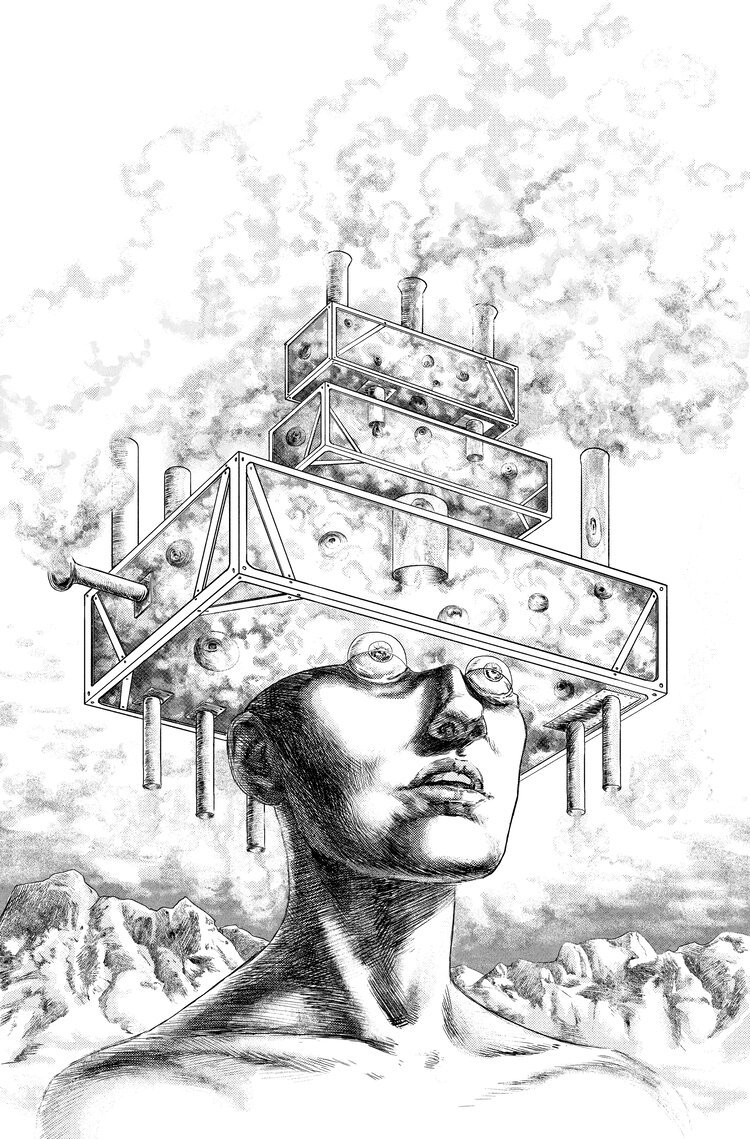TSC CREATOR INTERVIEW: Jenna Cha
Jenna’s cover for ThoughtScape Comics #1
Jenna has a singular ability to communicate the strange, the creepy and the horrific. Her jaw-droppingly great cover for ThoughtScape Comics #1 was a huge part of our first Kickstarter’s success, both publishing wise and artistically speaking. It blew me away as soon as I saw it in rough sketch form, and it helped me understand what this then-nascent project I’d started could become from an artistic standpoint, setting a gloriously high bar for myself and my collaborators.
Matt: What got you into comics as reader/fan?
Jenna: I grew up reading Calvin and Hobbes, Garfield, and Zits, so it was only natural that I progressed later in life to reading Junji Ito, Al Columbia and Charles Burns.
I was actually obsessed with comics as a child and comic books were always an object of familiarity and comfort to me; I asked my parents to read comic strips to me before bed, and I made sure to have some kind of book in my hand wherever I went. Comics have been a constant in my life for as long as I can remember, and it was a given that the kind of comics I’d read would just keep expanding.
Matt: What got you into comics as creator?
Jenna: I was as obsessed with drawing comics as much as reading them as a kid, and I wasted reams and reams of my family’s computer paper for my own silly little cartoons. Drawing in a cartoon strip format was just the form of communication my young mind attached to, and as with my love for reading comics, this language just never left me as I grew older. It wasn’t until I discovered comic classes being taught at my community college, and at various art schools across the country, when I realized that being a “comic artist” was taken seriously as a viable career. Well, career is perhaps the wrong term…
Matt: Who do you consider to be your influences, and are there any artists you consider to be an influence that might not be apparent from your style?
Jenna: Junji Ito was the first artist to really influence my penmanship style, and after being exposed to his art, the world of stark deep black lines and hatching spoke to me artistically and spiritually (perhaps that also comes from my childhood love for Ferdinand The Bull). Junji Ito was also a defining figure in my relationship to horror; as someone who grew up with a tremendous amount of anxiety and was very sensitive to fear, the horror genre is just something I understand more than anything. For an embarrassingly long time I never actually read a full Junji Ito story because I couldn’t physically look at his art. I literally would get a fight-or-flight reaction if I looked at Junji Ito on Google Images for a few minutes. This level of horror really opened up my perspective of what it means for images to instill fear, and more importantly, the sequencing of images. As for influential artists who might not be apparent from my style, I adore E.H. Shepard, the original illustrator of Winnie The Pooh.
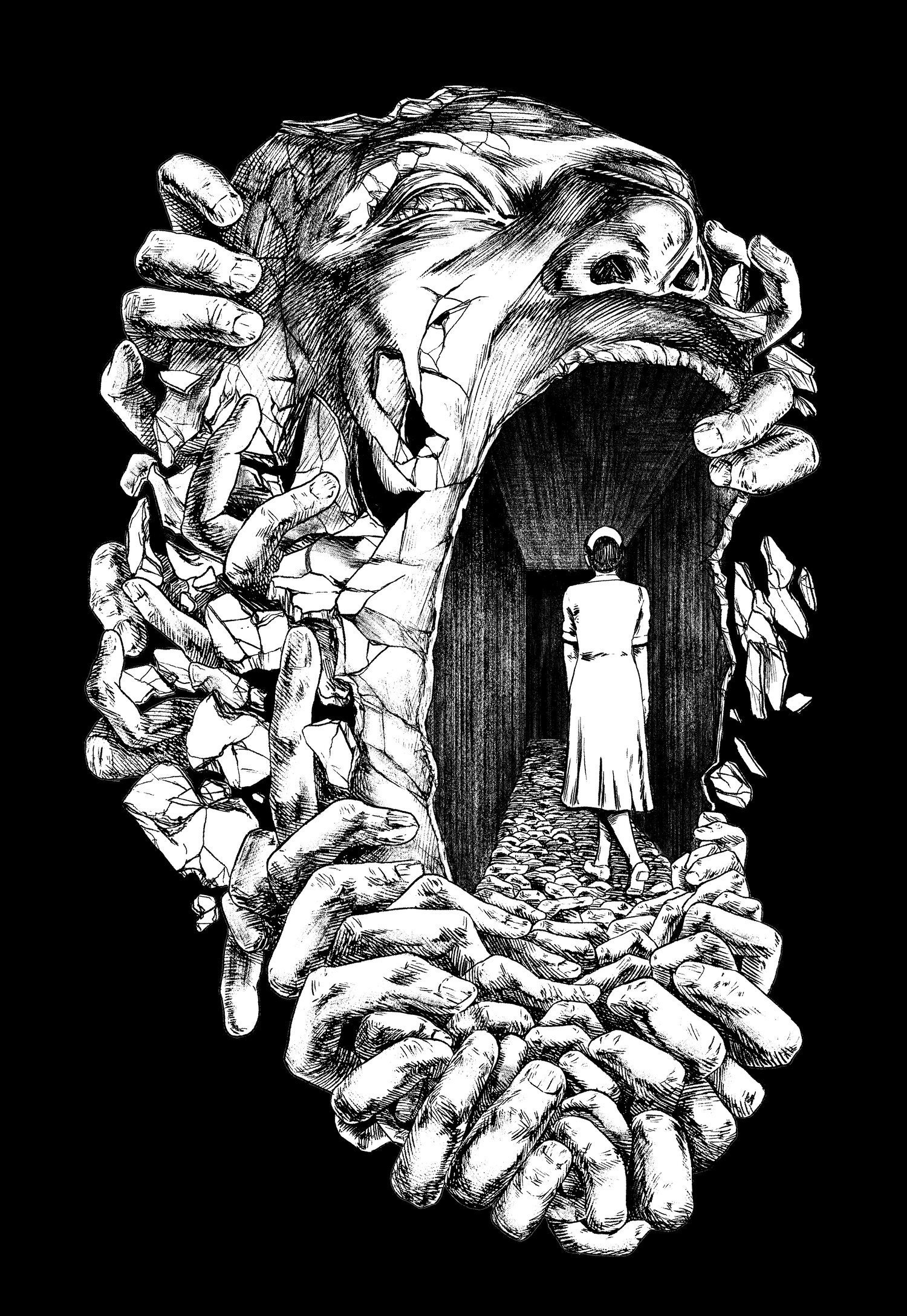
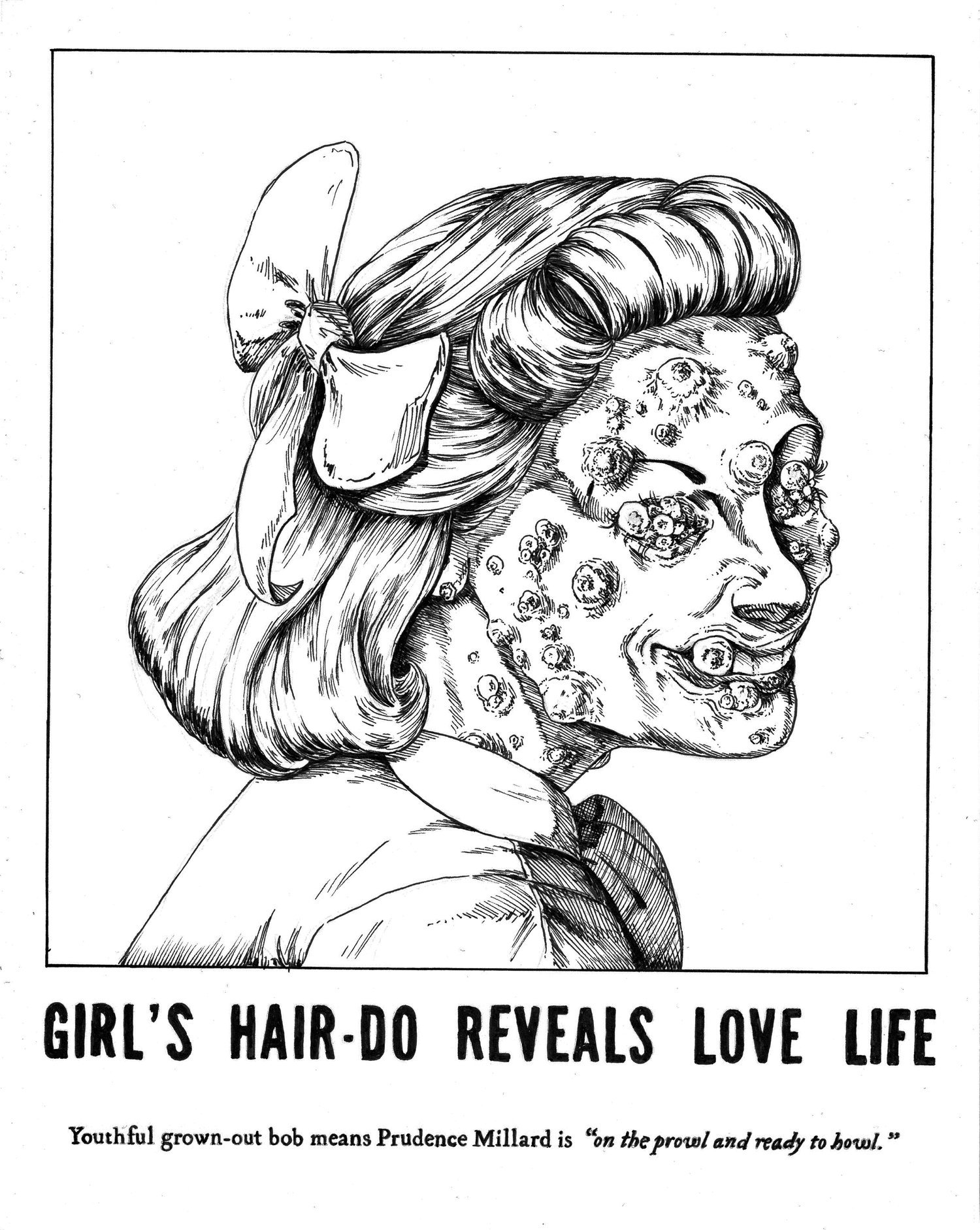
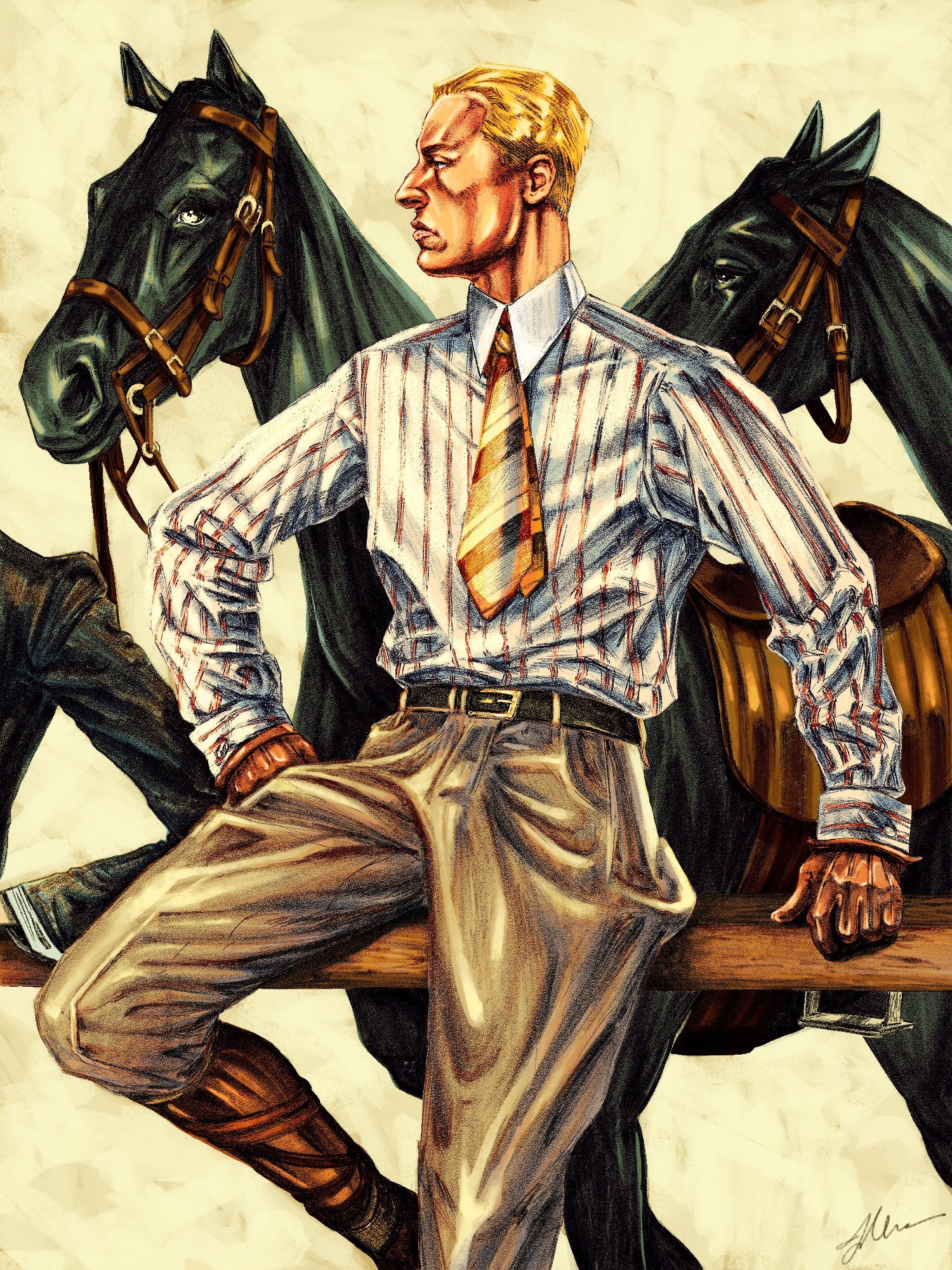
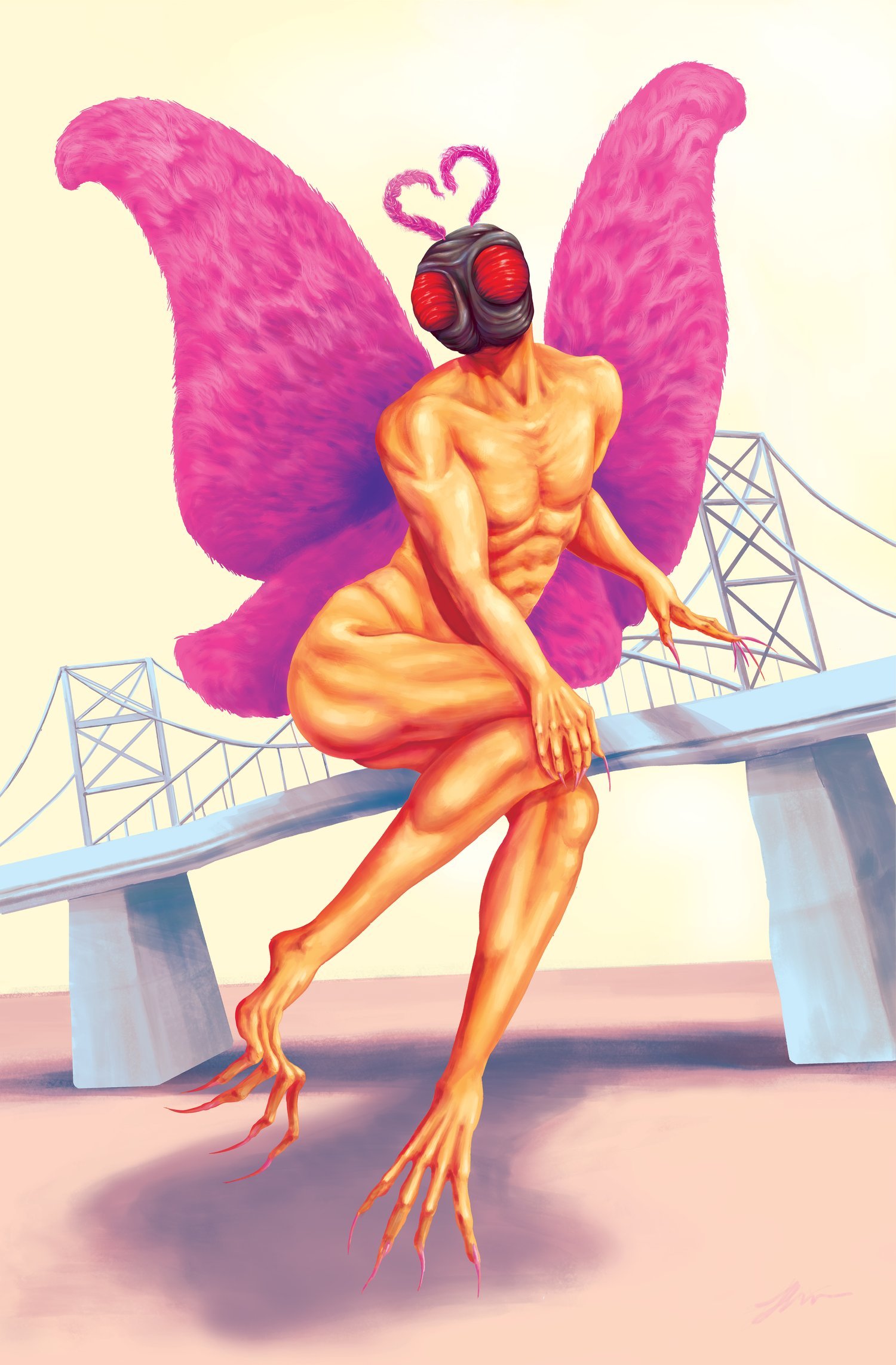
Matt: Are there any influences on your work from outside of comics?
Jenna: I’d like to think that everything non-artistic should be looked at with just as much influence on my work as artistic things; I have the pretty typical roster film/music/literature/fine art influences that I feel like most people could perceive in my work, but I’m at a point in life where I enjoy talking about history, love for the research process, languages, and travel experiences as markers of influence on how I work. Perfect time for me to embrace the wayfaring Herzogian view on life as I approach the identity nightmare, my 30s.
Matt: Aside from communicating the narrative, do you have other artistic goals in mind when you sit down to create a story? Anything you're trying to pull off, artistically speaking... a certain way you want to stylistically approach a certain aspect of things, etc.?
Jenna: I guess that’s pretty much the definition of comics—finding ways to transcend the basic understanding of communication through ineffable and infinite artistic/design choices. I’m bad at putting things like this into words, because the way I work is very spontaneous. No matter how much I write, pre-plan and layout, I almost never finish a page or a piece with the same idea as I start with. It’s like my drawing hand has a second brain. I’ve embraced spontaneity as part of my process, sometimes I’ll be surprised at how things fall into place better than I could’ve planned.
Matt: Are there ways in which you hope to push your art in the future, or just things you hope to try at some point?
Jenna: The short answer is oh yes. I love the idea that my art style is fleeting and it’ll keep evolving until the day I die. I have standard goals of wishing my art would look more proportionally realistic, have denser amounts of detail, and just having a better understanding of rendering things in general. But there’s so many different styles, mediums, processes, tools, etc. that I want to try that I just expect my art to be pushed in all sorts of ways eventually.
Matt: Is there an aspect of your ThoughtScape cover that you especially enjoyed or are especially happy with how it came out?
Jenna: At the time of drawing the cover, I had really wanted to dive into more trippy psychedelic art, and this was the perfect opportunity for me to do so. I love those insane, near incomprehensible 1970s science fiction book cover illustrations that may or may not have anything to do with the story, because seeing that level of trippiness just feels very liberating as an artist. There are no rules! Do whatever you want! A monkey face with an erotic computer motherboard body lying next to a purple glacier with wings and a top hat? Sure! So being able to break a few tethers in my brain and just really go for something weird was extremely fun. This also spoke to the spontaneous part of my process, where I don’t adhere to a strict plan, and things on the cover just grew and grew.
Matt: What do you do when you're not making comics?
Jenna: When I’m not working, I mainly spend my time trying to find a hobby.
Matt: What are you working on currently / what's coming up for you?
Jenna: I’m working on an epic historical horror comic series co-written by my husband Lonnie Nadler, as well as a couple anthology short stories in the works.
A page from an unannounced project written by Lonnie Nadler & Jenna Cha, Art by Jenna, 2021
Matt: It feels like these are extra strange times in art, comics, publishing, etc. In light of that, what does a successful career in comics or art look like to you currently?
My honest answer is I don’t know. Comics is a very fickle thing that has contradictions in the way it works as a business and “career.” I don’t think there’s really any such thing as “breaking into comics”, at least not anymore. The figures of “success” we look up to likely came from a different time and a different economy, and it’s probably better we look more inwards when we consider what it is we want in this creative pursuit. I know I just conceded that I do not know the answer to this question, and then proceeded to insist on giving a long-winded half-realized soap box answer. I must be spending too much time on Twitter.
Matt: Last great comic you read?
Jenna: I’ve been thoroughly enjoying the Blood On The Tracks series. I’ve also recently got my hands on my new prized possession, “Flapper Queens: Women Cartoonists of the Jazz Age” by Trina Robbins.
Matt: Where can folks find and follow your work?
Jenna: My website is TheJennaChaShow.com, where I have my portfolio and my store.

